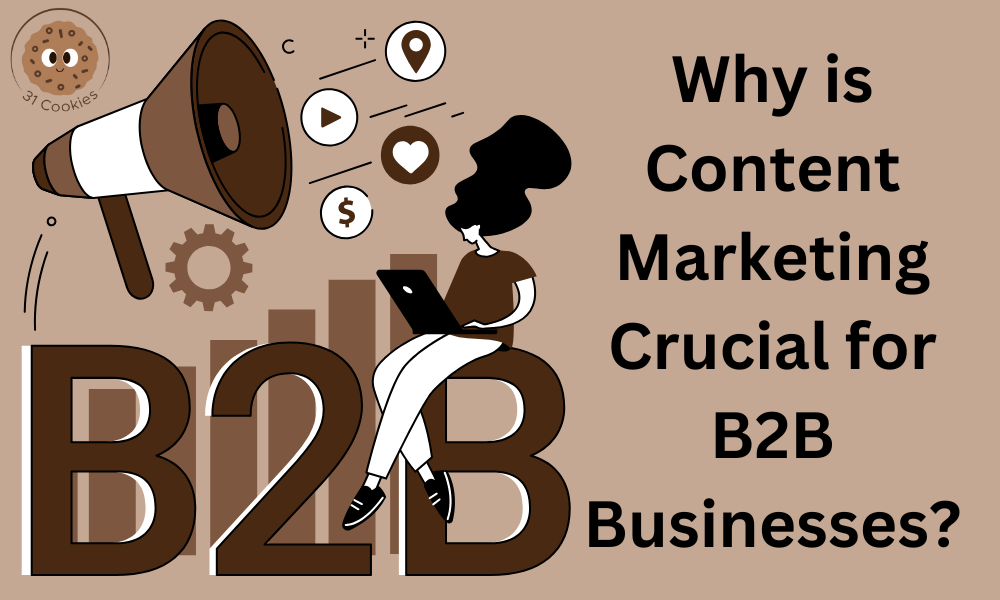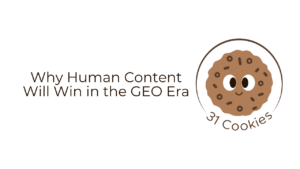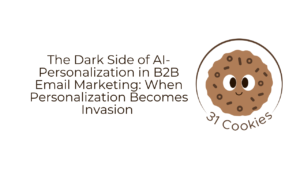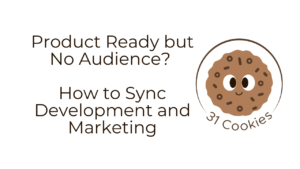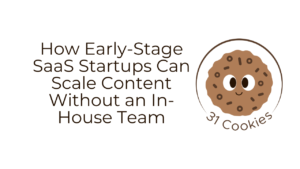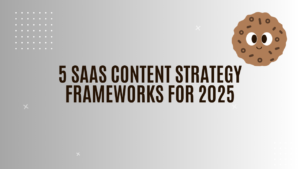B2B businesses today are facing fierce competition, and a simple brochure doesn’t make them stand out anymore. When you think of marketing, you probably picture flashy ads or quick social media posts.
However, for B2B businesses, content marketing is key. Whether it’s a detailed whitepaper, an insightful blog post, or a targeted video, targeted content marketing builds long-term client relationships.
Recent statistics reveal that 46% of B2B companies think their content marketing budgets will increase this year, highlighting how vital it is to drive growth.
Let’s look at why you, as a B2B business owner, should leverage content marketing. 🎯
What is B2B Content Marketing?
B2B content marketing is a strategic approach focused on creating and distributing valuable content to engage other businesses and drive profitable customer acquisition.
Unlike traditional marketing methods, which often rely on direct sales tactics, B2B content emphasizes building relationships and trust through informative and educational content.
The shift towards digital marketing strategies propels the need for businesses to establish online credibility and authority in their industries. Content marketing also helps companies to adapt to the evolving buying behavior of business consumers who favor research-driven decision-making.
Some common formats of B2B content include. 👇
- Whitepapers: In-depth reports providing detailed information on a specific topic, often used to demonstrate expertise.
- Case Studies: Real-world examples showcasing how a product or service solved a problem for a client.
- Blogs: Articles that provide insights, tips, or industry news to attract and educate the audience.
- Webinars: Live or recorded sessions where experts discuss relevant topics, allowing for interaction with potential clients.
- Ebooks: Comprehensive guides offering valuable strategies or advice in a longer format.
- Infographics: Visual representations of data or processes, making complex information more accessible.
- Videos: Multimedia content, such as tutorials, explainers, or testimonials, to engage viewers.
- Podcasts: Audio content discussing trends or insights, ideal for on-the-go listeners.
- Newsletters: Regular email updates featuring curated content, news, or industry tips.
- Thought Leadership Articles: Expert-written pieces that establish authority and credibility.
- Social Media Posts: Bite-sized updates designed to engage and share insights on professional platforms.
🔍Did You Know? A whopping 84% of marketers cite difficulty integrating data from various platforms as their biggest hurdle when measuring content performance. The most frequently cited content creation challenge is creating the right content for the audience (57%).
B2B vs. B2C content marketing
To understand how B2B benefits businesses, it’s essential to understand the differences between B2B and B2C content marketing.
Let’s take a look:
| Criteria | B2C Content Marketing | B2B Content Marketing |
| Target Audience | General consumers; broad demographic | Specific decision-makers within businesses; niche focus |
| Content Goals | Drive brand awareness and emotional engagement | Educate, build trust, and drive leads/sales |
| Content Style | Emotional, entertaining, and relatable | Tactical, factual, and professional |
| Common Formats | Social media posts, videos, blogs, quizzes | White papers, case studies, webinars, blog posts |
| Distribution Channels | Social media (Facebook, Instagram), email marketing | Email marketing, LinkedIn, industry conferences |
| Keyword Strategy | Focus on high-volume keywords for broad reach | Target high CPC keywords with lower search volume |
| Sales Cycle | Shorter and often impulsive | Longer and more complex due to multiple stakeholders |
| Engagement Metrics | Likes, shares, comments | Leads generated, downloads, inquiries |
| Content Lifecycle | Often seasonal or trend-driven | Long-term value; content serves multiple stages of the buyer journey |
🧠Fun Fact: The top five metrics used to measure content success are conversions (73%), email engagement (71%), website traffic (71%), website engagement (69%), and social media analytics (65%).
Why is B2B Content Marketing Important?
B2B content marketing isn’t just a trend anymore; it’s necessary. Did you know decision-makers consume an average of 13 pieces of content before making a purchase decision? And so, the ability to educate, engage, and build trust has become critical for B2B success.
Here are some primary reasons why B2B content marketing matters. 👀
Helps educate your audience
Content marketing makes it easier for potential customers to understand your products and services. When you share insights that genuinely help people solve their challenges, you build trust and position your brand as a go-to expert.
Puts your brand in the spotlight
The more quality content you produce, the more people notice your brand. Sharing articles, videos, or reports across different platforms ensures you’re reaching potential customers wherever they are in their journey.
Plus, search engines love fresh, relevant content. Regularly publishing well-optimized blogs or resources boosts your website’s visibility and makes it easier for potential customers to find you.
Brings in better leads
When your content speaks directly to your audience’s needs, it naturally attracts the right people. Instead of casting a wide net, you’re focusing on those who are most likely to become customers.
🧠Fun Fact: 58% of B2B marketers say their content marketing efforts directly generated sales/revenue—a significant rise from 42% the year before.
Builds trust and keeps customers coming back
When people feel informed and understood, they’re more likely to trust your brand. Consistently providing valuable information fosters long-term relationships, turning first-time buyers into loyal clients.
🌟 Additional Resource: Here are some statistics of key goals achieved through content marketing:
- Brand awareness: 84%
- Demand/lead generation: 76%
- Subscriber/audience nurturing: 63%
- Customer loyalty growth: 50%
- Subscribed audience growth: 40%
- Reducing support costs: 10%
Shows you’re a leader in your field
When you share expert opinions or data-backed insights, you establish your brand as an authority. Customers prefer to work with businesses that are clearly knowledgeable and confident in their niche.
Unlike ads that stop performing the moment you stop paying, a solid blog or case study can keep driving leads for years. That’s a high return on a relatively small investment.
Lets you get creative with formats
Not everyone likes reading blogs. Some prefer videos, others like infographics, and some might enjoy in-depth white papers. Using a mix of formats lets you cater to everyone’s preferences.
🔍Did You Know? 94% of B2B marketers use short articles or posts, making them the most popular format. Videos follow closely at 84%, and case studies/customer stories take third place at 78%. Interestingly, 53% of marketers find both videos and case studies highly effective in engaging their audience.
Boosts your social media efforts
Social platforms thrive on shareable content. When you create something insightful, it’s more likely to get shared, increasing your reach and introducing your brand to new audiences.
🔍Did You Know? Social media leads the pack, with 9 in 10 B2B marketers leveraging organic posts. Blogs (79%) and email newsletters (73%) also play significant roles, while in-person events and webinars, used by 56%, are reported to deliver the best results.
Helps close deals
At the end of the day, good content guides potential customers toward making a decision. By addressing their concerns and showing how you can help, your content becomes a silent salesperson.
Real-life Examples of Successful B2B Content Marketing
Successful B2B content marketing campaigns show how creativity and strategy can engage audiences, build trust, and drive results. Here are some that stand out with their exceptional content marketing strategies:
- ClickUp: ClickUp has really nailed content marketing with a strategy focused on solving user pain points. Their blog covers a wide range of topics, especially for startups and agencies, while their YouTube channel serves up a mix of engaging tutorials and lighthearted content.
- HubSpot: HubSpot is a prime example of inbound marketing done right. They offer a wealth of resources—blogs, eBooks, webinars—that aim to educate businesses on everything from marketing to customer service.
- Buffer: Buffer produces high-quality content, including guides, case studies, and research reports, all designed to help businesses enhance their social media strategies. Their blog has actionable insights and tips that marketers and social media managers find incredibly valuable.
🌟 Additional Resource: 28% of B2B marketers describe their content strategies as very successful. What sets them apart?
- 79% attribute their success to knowing their audience
- 68% ensure their content aligns with organizational objectives
- 61% measure and demonstrate content performance effectively
- 60% prioritize thought leadership
- Collaboration and a documented strategy also play significant roles (55% and 53%, respectively)
Stellar B2B Content Marketing With 31Cookies
B2B businesses thrive in crowded markets with content marketing. Whether you’re educating your audience, building trust, or nurturing long-term relationships, the right content can make all the difference.
Brands like ClickUp have proven that with the right approach, content marketing drives engagement and real business results.
At 31Cookies, we’re proud to help companies like ClickUp craft the kind of content that resonates with their audience. By focusing on educational, relatable, and value-driven content, we help brands tell their story and connect meaningfully with potential customers.
Ready to take your content marketing to the next level? Reach out to 31Cookies today! ✅

